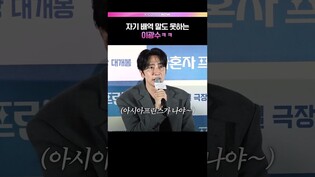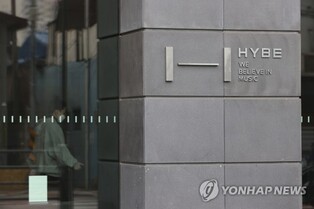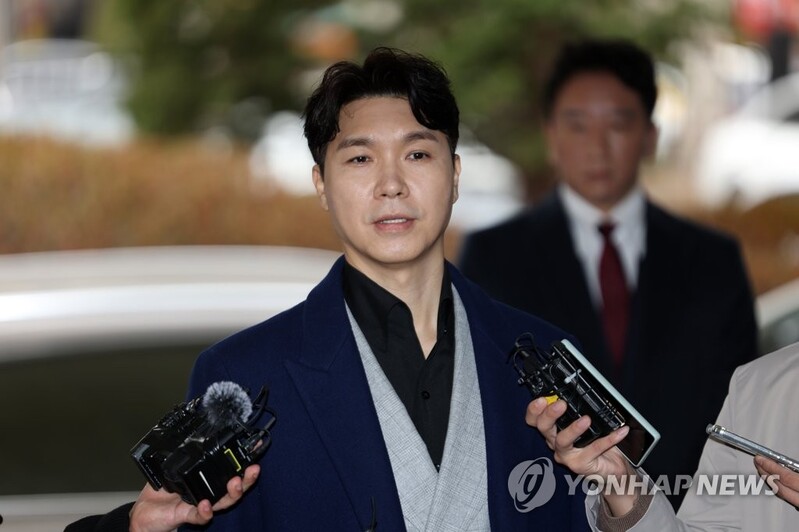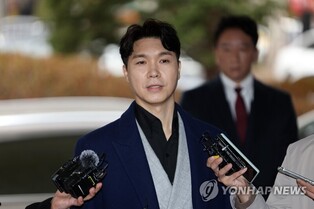dailies-editorials (2)
(EDITORIAL from Korea Times on April 27)
Arbitrary diplomatic remarks
-More seasoned, balanced approaches urged for Yoon-
One interview with a foreign media outlet created a huge mess.
That seems to have become a routine for President Yoon Suk Yeol's public communication.
Last month, Yoon caused a stir in an interview with Japan's Yomiuri Shimbun. He told the daily that Seoul would compensate South Korean victims of Japan's wartime forced labor on behalf of Tokyo.
Last week, Yoon hinted in an interview with Reuters that Korea could provide weapons to Ukraine under certain conditions, inviting angry responses from Russia. On Monday, Yoon told the Washington Post he "cannot accept the notion that…they [Japan] must kneel because of our history 100 years ago."
We'd rather hope it was just a slip of the tongue. But that does not appear to have been the case, because words reveal one's thoughts. Yoon's political opponents were right to say they feel like the late ultra-right Japanese leader Shinzo Abe came back to life. Abe used to say the Japanese should not destine their descendants to keep apologizing for past wrongdoings they did not commit.
We agree. But that explains why the current generation must settle Japan's past wrongdoings committed against its neighboring countries. Tokyo says it has apologized many times. But the apologies were neither heartfelt nor lasting. Every time Tokyo apologized, some nationalists reversed it with contrasting words. When Prime Minister Fumio Kishida vowed to inherit previous governments' historical perceptions, he included those of Abe.
Yoon cited European countries as examples of experiencing wars in the past century but having found ways to cooperate. Warring countries are responsible for their decisions. They can either win or lose and settle scores afterward. Korea and Japan did not fight a war. Japan occupied Korea against the will of the Korean people, killing them and trampling on their human rights. Tokyo has neither recognized the illegitimacy of its annexation of Korea nor appropriately compensated the victims of inhumane abuses.
There were invasions and occupations in Europe, too. But Germany never ceases apologizing to its neighbors for its acts committed some 80 years ago. Last week, German President Frank-Walter Steinmeier knelt again in Poland. "There is no end to historical responsibilities," he said.
Japan has no intention to do that, with its nationalist leaders believing the rough handling of weaker countries by stronger neighbors a century ago was inevitable. They may think the massacres of independence fighters were less brutal than the Holocaust. But the degree of atrocities cannot justify such contrasting attitudes and behaviors.
The governing People Power Party (PPP) is little better. It compared Yoon's remark to former liberal President Kim Dae-jung's words. In 1998, Kim told the Japanese Diet that less than 50 years of unhappy history should not mar bilateral exchanges and cooperation for 1,500 years. But Kim also told Tokyo to "show real courage to face the past and be afraid of history."
A PPP spokesperson, anxious to defend the president, even raised the possibility of mistranslation by the Washington Post journalist who interviewed Yoon. "The subject of the 'cannot accept' part must have been Tokyo, not the president," he said. However, the reporter disclosed the original Korean version, proving the spokesperson himself was confused about it. Shame on the politician, but he might be forgiven for thinking a Korean president could never have said that.
"Voters did not delegate the right to elected power elites to absolve Japan that committed crimes against humanity," former PPP lawmaker Yoo Seung-min said. We can hardly agree more. Yoo, an archrival of Yoon in the PPP primary, also pointed out that the president promised during his election campaign to get an apology from Japan, but reneged on the pledge after stepping into office. Breaking campaign promises is common, but this kind of betrayal is rare. What will the victims of wartime sex slavery, who smiled beside Yoon during the election campaign, say?
Diplomacy alienated from the people cannot last long. Yoon must ponder whether his moves will strengthen or weaken ties with Japan in the long run. He can start by sacking his Japanophile national security adviser, Kim Tae-hyo.
(END)
(C) Yonhap News Agency. All Rights Reserved


































